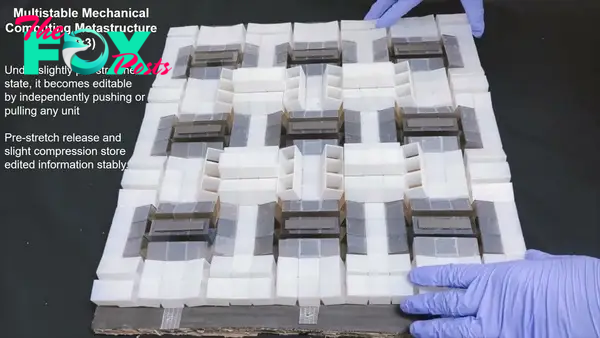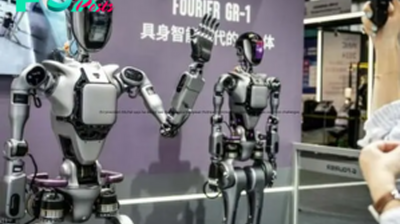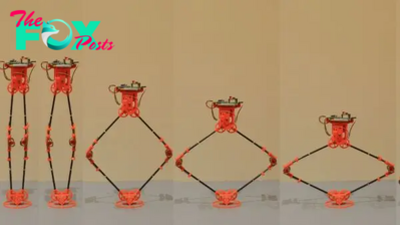Technology
Computer inspired by Japanese art of paper-cutting has no electronics and stores data in tiny cubes
Researchers have built a mechanical computer inspired by kirigami, the Japanese art of paper-folding and cutting.
The proof-of-concept computer, which includes no electronic components, has 64 interconnected, 0.06 cubic inch (1 cubic centimeter) polymer cubes that can be rearranged to store, retrieve and erase data. Similar to kirigami, where paper is cut and folded into intricate designs, the computer can be physically manipulated into different configurations and states.
In this machine, each cube represents a bit of binary data, which can be pushed up or down to represent 1 or 0, respectively. Rearranging the cubes changes the computer's configuration, enabling information to be stored or represented in physical form.

The scientists said the concept could be used to create physical encryption-decryption systems, or even develop touch-based systems for 3D environments.
"For example, a specific configuration of functional units could serve as a 3D password," lead study author Yanbin Li, a postdoctoral researcher at North Carolina State University's College of Engineering, said in a statement. "We’re also interested in exploring the potential utility of these metastructures to create haptic systems that display information in a three-dimensional context, rather than as pixels on a screen."
Related: 'Quantum-inspired' laser computing is more effective than both supercomputing and quantum computing, startup claims
The researchers published their research June 26 in the journal Science Advances.
-

 Technology10h ago
Technology10h agoChinese develop brain-on-a-chip system to promote autonomous robot
-

 Technology21h ago
Technology21h agoChinese AI market upbeat despite western scrutiny
-

 Technology1d ago
Technology1d agoThe Most Expensive TVs for Your Viewing Pleasure
-

 Technology1d ago
Technology1d agoRussian central bank urges use of crypto to counter sanctions
-

 Technology2d ago
Technology2d agoSamsung's Q2 profit expected to surge 13-fold due to AI frenzy
-

 Technology2d ago
Technology2d agoDoes turning the air conditioning off when you’re not home actually save energy? Three engineers run the numbers
-

 Technology2d ago
Technology2d agoMicrosoft agrees to $14m settlement over claims of penalising employees for taking leave
-

 Technology2d ago
Technology2d agoUS awards Moderna $176m for bird flu vaccine development



























